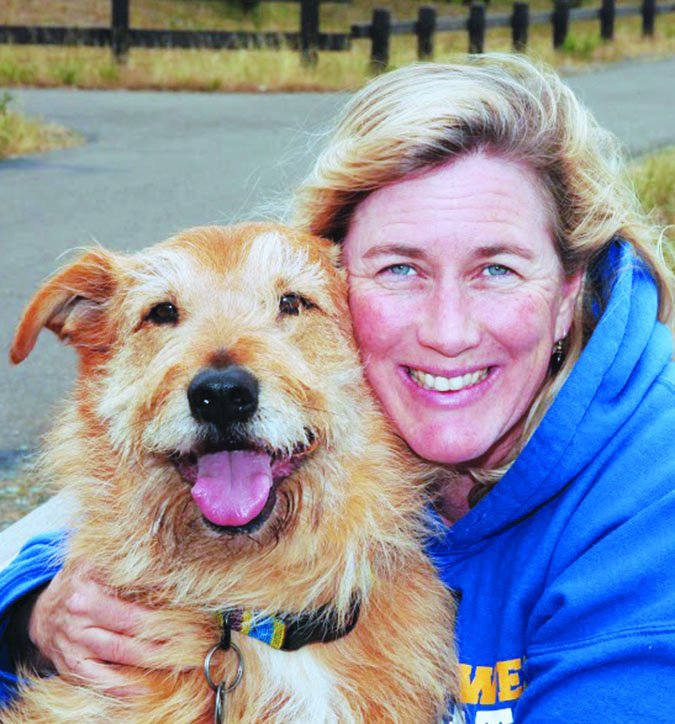
As you may know, because for months I’ve talked about almost nothing else, I’ve been on a puppy-fostering jag since November. My shelter has a hard time with keeping large litters of puppies clean, warm, dry, and healthy, particularly in the winter; I guess that’s true for many if not most shelters. So I’ve been taking on one litter after another, starting with my first-ever foster-fail pup Woody, who was one of nine puppies; then a litter of six Chihuahua/terrier-mixes, all boys; another litter of nine cattle dog/pit-mixes, all adorably freckled; and I’m at the tail end (no pun intended) of a litter of seven German Shepherd/hound/who-knows-what-mixes. Playing with and caring for the pups has been fun, challenging, messy, expensive, and interesting! But here is the latest thing I’ve been fascinated with: the people who come to adopt a puppy – and end up walking out, or at least trying to walk out, with two.
It’s happened every single time that I brought the pups to the shelter. As soon as the pups in a given litter were judged to be big enough, healthy enough, and socialized enough to be put up for adoption, and I brought them (tearfully) to the shelter, a parade of potential adopters came to meet and greet them. Not a single person walked in saying “I want to adopt two puppies!” – but almost everyone said, at some puppy-covered point, “Oh honey, should we get two?”
For some people it’s a joke – someone teasing his or her partner. For some, it’s a fleeting impulse, one that’s quickly banished by the reality of the size (and cost!) of the commitment. But some people jump in with both feet! They hadn’t considered it before, but by gosh, they have every reason to do so now.
My shelter doesn’t have a policy against such a thing, as much as I wish they did. Perhaps shelters in less economically challenged parts of the country are more selective about sending puppies out the door; here, they are happy to place two at once . . . even if I’m standing on the sidelines, wringing my hands.
My hand-wringing and dire predictions worked to dissuade adopters every time, until this last litter. I wasn’t there to cheerily let the owners know everything that could go wrong when adopting two, and guess what? The shelter put me in touch with the young couple with the five year old son who did adopt two pups. Of course, they are having trouble managing both puppies. I’m giving them lots of advice and encouragement – and begging them to stay open to the idea of returning one while they are still young enough to be relatively undamaged by time getting away with the sort of behaviors that lead many people to return pups as adolescents: a lack of housetraining, barking at novel things, and chasing, jumping up on, and biting the baby.
Why am I and so many trainers against this practice? The biggest reason is that puppies tend to bond more to each other than to their new human family members, making training and management much more difficult. It takes MORE than twice as much time to properly train two puppies than one (and few people take enough time to train even one!). Many dogs raised full-time with a sibling also develop crushing separation distress when they finally have to be separated.
What’s your opinion? Do you have problem-free sibling dogs? Or have you experienced all the bad things that, later, trainers told you would happen?




